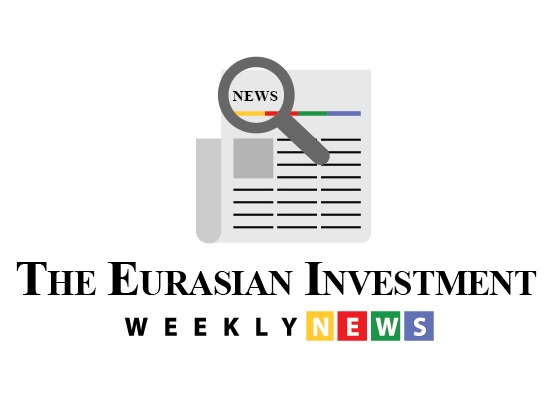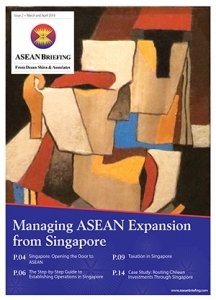China
 Out of the Scrapyard: How Foreign Involvement Can Help Solve China’s e-Waste Crisis
Out of the Scrapyard: How Foreign Involvement Can Help Solve China’s e-Waste Crisis
Late last month, the United States Congress introduced a new bill aimed at stemming the country’s regular flow of electronic waste to China. The U.S. is one of many foreign countries that exports huge amounts of e-waste to the Middle Kingdom – albeit often unintentionally – contributing to the numerous health and environmental problems that such waste creates, and leading to e-waste becoming a source of Chinese counterfeit electronic goods that are fed back into the global market.
But China’s status as a dumping ground for the world’s e-waste is only a part of the problem, and increasingly a comparatively smaller one. China has in place a blanket ban on all e-waste imports, and although several loopholes exist that illicit exporters continue to exploit, the country is now producing greater amounts of e-waste domestically. Government programs and general recycling efforts to tackle the issue have proven either ineffective or outright dangerous, raising the question of whether foreign involvement can form a part of China’s e-waste solution.
China Dismantles Controls of Yuan Conversion on Capital Account, Impacting Foreign Institutions
After one year of China’s RMB conversion pilot program in its four Free Trade Zones, the government is ambitiously introducing the policy nationwide to all non-financial institutions, both domestic and foreign, to help internationalize the RMB, secure its evaluation, and stabilize foreign exchange rates. The new policy simplifies RMB conversion procedures and gives foreign institutions leeway to manage external debt or income on capital account.
India
India’s New Twilight Law: 24/7 Operations for Retailers
India’s Union cabinet recently approved a bill that will allow commercial establishments to operate for 24 hours a day. The Model Shops and Establishments (Regulation of Employment and Conditions of Service) Act 2016 will permit malls, shops, restaurants, banks, and cinema halls to operate on a 24/7 basis. The bill is to have a significant impact on India’s business climate, market dynamics, and employment rate.
The proposed Act will cover all premises and shops, with the exception of those covered under the Factories Act 1948. However,it should be noted that the Act is only advisory in nature. State governments can choose to accept or reject the Act and implement it accordingly. Thus, the impact on businesses will be determined by the respective state in which the business operates.
City Spotlight: Investing in India’s Coimbatore
Coimbatore is a city located in the southern Indian state of Tamil Nadu. The highest revenue-yielding district after the state’s capital city, Chennai, its massive productive potential makes it one of India’s fastest growing metros. Coimbatore also enjoys the nickname ‘Manchester of South India’ as it is surrounded by cotton fields that feed into a flourishing textile industry. Yet, the city has a diversified economy, catering to the IT industry through a skilled labor pool and special economic zones (SEZs) that have attracted leading IT companies and technology service providers.
Additionally, Coimbatore is an important and renowned manufacturing center, producing specialized products intrinsic to the region, such as wet grinders. The city also produces auto components and manufactured the first diesel engine in the country. At least half of India’s motors and pumps come from the region lending it the name, the ‘Pump City’. Apart from being a major exporter of its manufactures, Coimbatore also exports jewelry, poultry, and software. Important trade associations such as the Coimbatore District Small Scale Industries Association (CODISSIA), Coimbatore Industrial Infrastructure Association (COINDIA), South India Textile Research Association (SITRA), and Coimbatore Jewelry Manufacturers’ Association (COJEWEL) regularly organize trade fairs and ensure their representative industries comply with the established standards.
Vietnam
EVFTA to Open New Chapter in EU-Vietnam Trade Relations
In the last few years, Vietnam has risen above many of its neighbors in ASEAN by posting impressive trade volume growth with a variety of countries. Vietnam is leading the pack in ASEAN as the biggest exporter to the U.S. and only ranks second to Singapore in terms of trade with the EU. This impressive growth has been a crucial precursor to the FTA between the EU and Vietnam (EVFTA), which was recently concluded. With the FTA in place, and in light of recent events within Europe, Vietnam has the potential of not only continuing this trend, but also improving its own production and expanding its key industries exponentially.
EVFTA comes as no surprise to both sides: Vietnam and the EU have been long-standing trading partners in the last decades, with their two-way trade value increasing from US$6.3 billion in 2003 to US$41.2 billion in 2015. The EU is not only one of Vietnam’s key trade partners, but also a key investor, having committing US$1.9 billion in FDI during 2015 alone. This makes the EU Vietnam’s third biggest investor. The trade relationship between the two has also been one of mutual benefit; as EU exports high tech products including machinery, aircrafts and pharmaceutical products to Vietnam, and Vietnam exports a wide range of agricultural and manufacturing products to EU, including textiles and garments, footwear, coffee and seafood.
Cambodia
The Guide to Corporate Establishment in Cambodia
Cambodia has been one of Asia’s fastest growing developing countries since the late 1980s when it dropped its planned economy plan for the free market. Its annual growth averaged 7.5 percent over the last decade, driven by robust garment exports, services, real estate, and construction. It is largely expected that the country’s prospects will remain robust in the coming years, although Cambodia is increasingly exposed to greater competition from other countries in the region, in particular Myanmar and Vietnam.
Investors who want to get involved in ASEAN can establish a business as long as they follow all required steps in formulating their business. In the case that uncertainty over requirements arises, it is important investors resolve any questions with the appropriate authorities or engage the service of business advisory specialists in order to ensure that compliance is maintained.
This article outlines the steps required to set up a Representative Office (RO) or a Wholly Foreign-Owned Enterprise (WFOE). The best type of investment depends solely on what kind of operations which is planned in the country.
Philippines
Philippines Set to Lower Corporate Income Tax under Duterte
The Duterte administration has successfully taken office and promises exciting changes for the Philippine economic landscape. Proposed adjustments start with commitments to lowering corporate and individual tax rates while supplementing government’s tax revenue through increases in value-added tax (VAT) rates to between 12 percent and 14 percent. Alongside these tax changes, the Duterte administration also claims it will begin the process of ‘rationalizing’ numerous tax incentives currently available to investors , including many VAT exemptions.
|
Asia Briefing Ltd. is a subsidiary of Dezan Shira & Associates. Dezan Shira is a specialist foreign direct investment practice, providing corporate establishment, business advisory, tax advisory and compliance, accounting, payroll, due diligence and financial review services to multinationals investing in China, Hong Kong, India, Vietnam, Singapore and the rest of ASEAN. For further information, please email asia@dezshira.com or visit www.dezshira.com. Stay up to date with the latest business and investment trends in Asia by subscribing to our complimentary update service featuring news, commentary and regulatory insight. |
![]()
 The Asia Sourcing Guide 2015
The Asia Sourcing Guide 2015
In this issue of Asia Briefing, we explain how and why the Asian sourcing market is changing, compare wage overheads, and look at where certain types of products are being manufactured and exported. We discuss the impact of ASEAN’s FTAs with China and India, and highlight the options available for establishing a sourcing model in three locations: Vietnam, China, and India. Finally, we examine quality control in each of these markets.
 Managing ASEAN Expansion from Singapore
Managing ASEAN Expansion from Singapore
For the second issue of our ASEAN Briefing Magazine, we look at the benefits of using Singapore a hub for the management of regional operations throughout ASEAN. We firstly focus on the position of Singapore relative to its competitors, such as the Netherlands and Hong Kong. We then provide step-by-step instructions on corporate establishment, and provide expert insight on maximizing returns through the reduction respective tax burdens.
The 2015 Asia Tax Comparator
In this issue, we compare and contrast the most relevant tax laws applicable for businesses with a presence in Asia. We analyze the different tax rates of 13 jurisdictions in the region, including India, China, Hong Kong, and the 10 member states of ASEAN. We also take a look at some of the most important compliance issues that businesses should be aware of, and conclude by discussing some of the most important tax and finance concerns companies will face when entering Asia.


